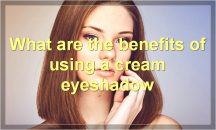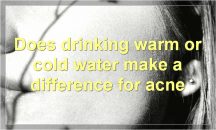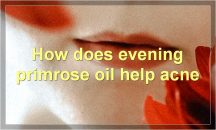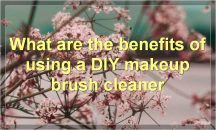The sun can actually help to clear up acne. The ultraviolet rays help to kill the bacteria that cause acne, and the heat helps to dry out the pimples.
How does the sun help acne
The sun can be both a friend and foe to your skin. When it comes to acne, the sun can actually help to improve the condition by reducing inflammation and killing bacteria. However, too much sun exposure can lead to skin damage, which can in turn cause more acne.
When used in moderation, the sun can help to dry out pimples and reduce redness. The UV rays from the sun can also help to kill bacteria that can cause acne. However, it is important to not overdo it, as too much sun exposure can lead to skin damage, which can then cause more acne.
If you are going to be spending time in the sun, it is important to wear sunscreen, even if you don’t have acne. This will help to protect your skin from damage. It is also important to drink plenty of water and stay hydrated when spending time in the sun.
If you are struggling with acne, there are many treatment options available. Talk to your dermatologist about what might work best for you.
Why does the sun help acne
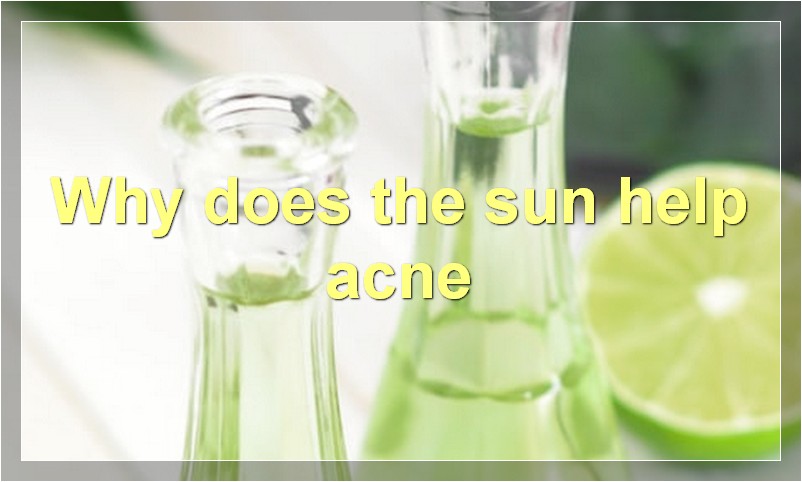
The sun has been shown to help acne in a number of ways. First, the ultraviolet (UV) rays from the sun can help to kill the bacteria that cause acne. Second, the sun can help to reduce the inflammation that is associated with acne. Third, the sun can help to dry out the oil that is produced by the skin, which can help to reduce the severity of acne. Finally, the sun can help to stimulate the production of new skin cells, which can help to improve the overall appearance of the skin.
What are the benefits of the sun for acne
The sun has been used as a treatment for acne for centuries. The benefits of the sun for acne are many and varied. The most obvious benefit is that the sun can help to dry out the skin and reduce oil production. This can help to reduce the number of acne breakouts. The sun can also help to reduce inflammation and redness.
There are a number of other benefits of the sun for acne. The sun can help to kill bacteria that cause acne. The sun can also help to reduce the size of pores and make them less visible. The sun can also stimulate the production of new skin cells, which can help to heal existing acne scars.
If you are considering using the sun as a treatment for acne, it is important to remember that too much sun exposure can actually make acne worse. It is important to find a balance between getting enough sun exposure to reap the benefits, but not so much that you end up causing more damage to your skin.
Does the sun help to dry out pimples
When it comes to pimples, we all know the drill: don’t pick, don’t squeeze, and hope for the best. But what about using the sun to dry out pimples? Does the sun help to dry out pimples?
The short answer is yes, the sun can help to dry out pimples. The UV rays from the sun can help to kill bacteria and dry out excess oil that can lead to pimples. However, there are a few things you need to keep in mind before using the sun to treat your pimples.
First, it’s important to make sure that your skin is protected from the sun. This means applying sunscreen with at least SPF 30 and wearing protective clothing, such as a hat or sunglasses.
Second, you need to be careful not to overdo it. Spending too much time in the sun can lead to skin damage, so it’s important to limit your exposure.
Finally, if you do decide to use the sun to treat your pimples, be sure to monitor your skin closely. If you notice any redness, swelling, or pain, be sure to seek medical attention.
So, does the sun help to dry out pimples? Yes, but you need to be careful. If used correctly, the sun can be an effective treatment for pimples. Just remember to protect your skin and monitor your exposure closely.
How long should you stay in the sun to help acne
If you’re one of the millions of people who suffer from acne, you may be wondering how long you should stay in the sun to help clear up your skin. While there is no definitive answer, there are a few things to consider that can help you make the best decision for your skin.
First, it’s important to understand that acne is caused by a variety of factors, including hormones, stress, diet, and genetics. While sunlight can help to dry out the skin and reduce oil production, it’s not a cure-all for acne. In fact, too much sun exposure can actually worsen acne by causing inflammation and irritation.
That said, moderate sun exposure can be beneficial for acne sufferers. The sun’s ultraviolet rays can help to kill bacteria on the skin, which can help to reduce breakouts. Additionally, the heat from the sun can help to open up pores and remove dead skin cells that can clog them.
So how long should you stay in the sun if you’re trying to help your acne? It depends on your skin type and the severity of your acne. If you have sensitive skin or are prone to burning, you’ll want to limit your sun exposure to no more than 20 minutes per day. If you have oily skin or are dealing with more severe acne, you may be able to tolerate longer periods of sun exposure without any negative effects.
Ultimately, it’s important to listen to your skin and pay attention to how it responds to the sun. If you start to experience excessive dryness, redness, or irritation, it’s time to head indoors. And remember, while moderate sun exposure can be helpful for acne sufferers, too much sun can actually do more harm than good.
Are there any risks associated with using the sun to help acne
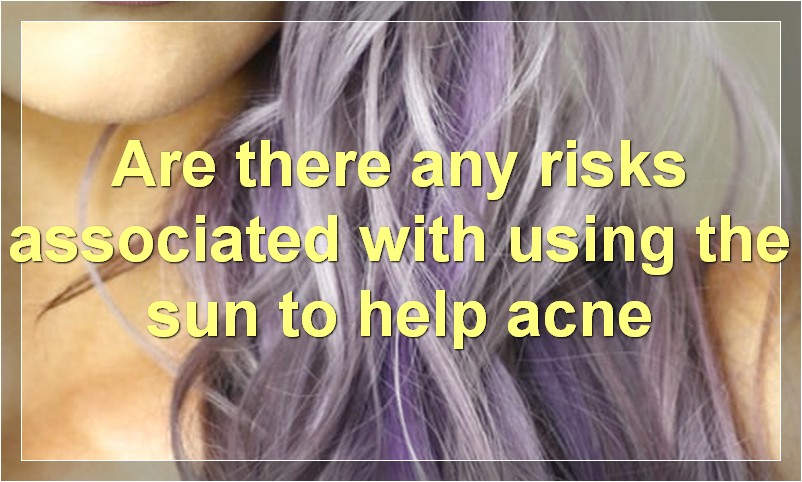
When it comes to acne, there are a lot of myths and old wives’ tales floating around. One popular belief is that the sun can help clear up acne. While it’s true that sunlight can have some benefits for your skin, there are also some risks associated with using the sun to help acne.
For one thing, excessive sun exposure can actually lead to more breakouts. This is because the heat and UV rays can irritate the skin and cause the sebaceous glands to produce more oil. This can clog pores and lead to more breakouts. In addition, sun exposure can also cause premature aging and increase the risk of skin cancer.
So, while the sun may offer some benefits for acne-prone skin, it’s important to be careful about how much sun exposure you get. It’s best to limit your time in the sun, wear sunscreen, and cover up any blemishes with makeup or clothing to protect your skin from further damage.
What is the best way to use the sun to help acne
Acne is a common skin condition that affects people of all ages. The sun can help to improve the appearance of acne by drying out the skin and reducing inflammation. There are a few things to keep in mind when using the sun to help acne:
1. Don’t overdo it. Too much sun exposure can actually make acne worse.
2. Use sunscreen. This will help to protect your skin from the harmful effects of the sun’s ultraviolet (UV) rays.
3. Be patient. It may take a few weeks of regular sun exposure before you see any improvement in your acne.
4. Talk to your doctor. If your acne is not improving with home treatment, including sun exposure, you should see a dermatologist for other potential treatments.
Does the sun help acne scars
There are a lot of myths out there about acne and its treatments. One common myth is that the sun can help heal acne scars. Unfortunately, this isn’t true. In fact, the sun can actually make your scars worse.
Here’s why: when you have a scar, your skin is trying to repair itself. The process of healing creates new collagen fibers, which are weaker than the surrounding skin. So when exposed to the sun, these new collagen fibers can break down, making your scar more visible.
In addition, the sun can also cause inflammation and redness, which can further accentuate the appearance of a scar. So if you want to keep your scars looking as minimal as possible, it’s best to stay out of the sun.
If you can’t avoid being in the sun, be sure to apply a broad-spectrum sunscreen with an SPF of 30 or higher. This will help protect your scars from further damage. And if you do notice your scars beginning to darken or become more pronounced, consult with a dermatologist for treatment options.
Can the sun make acne worse
Acne is a common skin condition that can be caused by a variety of factors, including hormones, genetics, and inflammation. While the exact cause of acne is unknown, there is some evidence to suggest that the sun may make it worse.
Inflammation is a key factor in the development of acne, and the sun can contribute to this by increasing the skin’s temperature and causing irritation. Additionally, exposure to UV rays can damage the skin’s barrier function, making it more susceptible to inflammation.
There is also evidence to suggest that the sun can increase the production of sebum, which is an oily substance that can clog pores and lead to acne. Sebum production is thought to be regulated by hormones, and exposure to UV rays has been shown to increase levels of certain hormones that are associated with sebum production.
While the exact role of the sun in acne is still not fully understood, there is some evidence to suggest that it can make the condition worse. If you are concerned about acne, be sure to protect your skin from the sun by using sunscreen and wearing protective clothing.
What other treatments can be used along with the sun to help acne
When it comes to acne, there are a number of different treatments that can be used in conjunction with the sun to help clear up the skin. For instance, using a topical retinoid at night can help to unclog pores and prevent new breakouts from forming. Additionally, using a salicylic acid cleanser or toner can also help to slough away dead skin cells and keep pores clear. And last but not least, applying a light layer of oil-free sunscreen during the day can help to protect the skin from further damage. By incorporating these various treatments into your skincare routine, you can help to improve the overall appearance of your skin and keep acne at bay.
